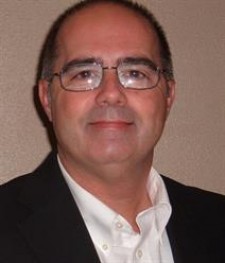
Online, September 30, 2015 (Newswire.com) - HOUSTON, TX - The wear and tear on the equipment and personnel within Chemical, Petrochemical, and Refining facilities is constant and ever changing. Keeping up with these changes while maintaining productivity and enhancing the bottom line is crucial to preserving a competitive advantage. The solution: plants are using sustainable maintenance and reliability techniques to streamline production and enhance asset health.
Jim Hudson, Maintenance Manager at Honeywell - Geismar, recently outlined how to integrate reliability and process safety programs together:
What is the difference between process safety professionals and reliability professionals? Why is integrating these two groups together so difficult?
JH:
- PSM professionals typically have chemical engineering backgrounds and operational experience, while Reliability professionals typically come from mechanical engineering backgrounds with maintenance experience.
- PSM professionals are focused on levels of protection and risk mitigation, while reliability professionals are focused on maximizing the life of the asset without impacting production.
- AIChe typically gives guidance to PSM professionals while ASME and API typically give guidance to Reliability professionals.
- PSM professionals are asked "What if it fails..?" Reliability is asked "How long will it last..?"
How does this integration positively impact production?
JH:
- PSM compliance casts a stronger focus on the existing reliability programs and ultimately makes them better resulting in less downtime.
- It mandates that reliability efforts comply with recognized and generally accepted good engineering practices (RAGAGEP)
- As the reliability program improves, it identifies failure modes earlier in the life of the equipment. This reduces emergency breakdowns and shifts repairs to planned and scheduled work that is less production impacting.
What challenges do you face in trying to satisfy both groups?
JH:
- Developing a common language between PSM and reliability
- Reconciling spending priorities for both PSM and reliability
- Typically, projects to add additional PMS levels of protection are funded, while reliability recommended improvements in materials of construction are often secondary.
- Established reliability teams sometimes feel threatened by PSM audits that show gaps in their systems, methods, and documentation. Especially because the auditors don't come from the same background and perspective as them.
- Interpretation of regulations and standards are often unclear and the PSM and Reliability teams may disagree on how to implement compliance actions.
What web based solutions do you use in your maintenance strategy? Are these used for both reliability and process safety programs?
Below are the Platforms used (Web based are noted in italics).
JH:
- SAP for Maintenance planning and PM's
- DMAPs for piping & vessel UT thickness reading, corrosion rates, and end of life prediction
- RMBware for vibration analysis of rotating equipment and oil analysis data
- eMOC company access based software to track management of change approvals
- ETS company access based software to track audit findings and action items
- Documentum company software for housing PID's, drawings, equip. specs, SOP's, etc.
- Valvekeep vendor supplied web based software for tracking relief device tests & repair records
What role do operators play in plant reliability?
JH:
- As part of their normal daily rounds they identify
- Leaking gaskets
- Corroded bolts
- Failing paint on piping, structures, and vessels
- Leaks from permeation of Teflon lined piping
- Abnormal sounding rotating equipment
- Operators write work order notification in SAP for the above items.
Jim has 28 years experience in the Pulp & Paper, and Chemical Industries. He has used his mechanical engineering degree in the roles of project engineer, maintenance planner, supervisor, reliability engineer, and maintenance manager. For the past 6 years he has worked for Honeywell at its Geismar, LA site where he was the reliability engineering leader before moving to his current role as maintenance manager.
Jim will be presenting on the above topics at the marcus evans 6th Annual Chem/Petrochem & Refinery Asset Reliability Conference, January 13-14, 2016 in Houston, TX. For any questions, read through the conference agenda or contact Tyler Kelch, Digital Marketing Manager, marcus evans at 312.894.6310 or Tylerke@marcusevansch.com.
About marcus evans
Marcus evans conferences annually produce over 2,000 high quality events designed to provide key strategic business information, best practice and networking opportunities for senior industry decision-makers. Our global reach is utilized to attract over 30,000 speakers annually; ensuring niche focused subject matter presented directly by practitioners and a diversity of information to assist our clients in adopting best practice in all business disciplines.
Image Available: www.marketwire.com/library/MwGo/2015/10/1/11G064145/Images/DSCF5275-81212741865.JPG
Source URL: http://www.marketwired.com/mw/release.do?id=2060576&sourceType=3
Share:
